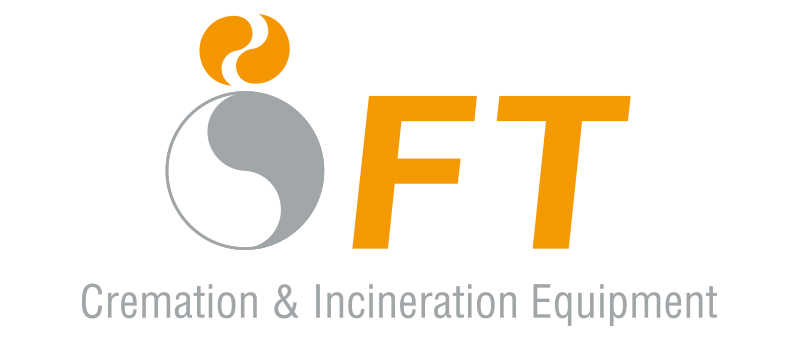The pandemic has affected many in the industry, leading to closures, delays and many bereaved struggling at a time that is stressful. Crematoria have had to make decisions to protect staff and mourners that has been greeted with controversy and many mourners unhappy.
We interviewed Angus Beacom of Aberdeen Crematorium to take a look at how they balanced the need for safety with keeping mourners comfortable and as content as possible. As not only a Crematorium Manager, but a TEST assessor for the FBCA, Angus has seen more on how this year has affected the industry.
I am employed by Aberdeen City Council in the role of Crematorium Manager. I also have a part-time role with the FBCA as a TEST assessor covering Scotland. The responses given below are responses from myself and should not be taken to be a corporate response from Aberdeen City Council.
On a day to day basis I am responsible for ensuring the Crematorium operates to predetermined standards and always in accordance with statutory regulations, Council policies and procedures and the FBCA Code of Cremation Practice.
Breaking this down into specific tasks would require many paragraphs of text as in any day I can be classed as anything from a Teacher, a Social Worker, a Handyman, a Cleaner, a Chapel Attendant or a Cremator Technician to name but a few roles.
As a manager it is always a great achievement to stand back and observe staff undertaking their duties in a professional manner and to the satisfaction of the families who have placed their trust in the staff.
Until recent times we had more opportunity to deal face to face with the public and convey our sympathies while they would often express their appreciation of the manner in which their requests were actioned. Recent events have changed this interaction with staff and families being required to socially distance and wear face coverings.
As a TEST Assessor, restrictions now mean that I am unable to attend other Crematoria to undertake practical TEST assessments however, I have processed an increased amount of written TEST assessments that has enabled other Crematoria to ensure that they have sufficient qualified staff to ensure continuity to fulfil their role as Crematorium Technicians.
The major changes that we have experienced are the changes in interaction with the public and also the way in which technology has been used to assist us in our roles and also to provide a service to the public. The use of technology to record services, implementing an online payment system through to putting all our statutory, and non-statutory forms online, has resulted in less interaction with the public while still providing the level of service demanded.
We have had to deal with social distancing and all other regulations that have been cascaded to us as a result of changes from The Scottish Government.
Initially when lockdown came earlier in the year, we took the decision to close our chapels. This was quite a controversial decision that did not find favour with all those affected. In the earlier stages of the pandemic, as was the case elsewhere, there was a great deal of uncertainty as to how the mortality rate was likely to increase. As Aberdeen Crematorium is the main crematorium for the North East of Scotland, we considered what the likely outcome would be if the virus were to be contracted by staff. To reduce the risk of all staff potentially being affected, the staff were split into two separate teams, with only one team attending work at any one time. This resulted in insufficient staff being available to operate both the chapels and the crematory and it also reduced the risk of staff contracting the virus from being in close proximity to multiple members of the public.
During the lockdown period when only essential travel was to be undertaken, access to our Book of Remembrance was not possible. By providing a hyperlink on our Council website the public were able to access the Book of Remembrance using any computer or smart device.
Our Bereavement Services Team (Administrative Support) are also based at Aberdeen Crematorium. To reduce the risk of this team being affected by the virus, the team leader took the steps to reduce the amount of staff in the office and ensure any tasks that could be undertaken remotely be completed by staff working from home. All staff working from home were contactable by members of the public and service users by diverting office phones and using video calling facilities.
 In simple terms, we have adapted very quickly and very efficiently with any changes due to legislative or operational requirements being discussed with the necessary team members prior to being implemented. Socially distancing seating in the chapels, collecting details for the Test and Protect scheme, the wearing of face coverings, limiting numbers of attendees to services, monitor screens that displayed chapel services times ae now used to display public information, directional arrows on the floor all things that a year ago we could not have envisaged, but are now all part and parcel of what we do on a daily basis. We must look ahead to what we know (hope!) is on the horizon. How are we going to cope with socially distancing and capturing Test and Protect details when we reach Covid Tier 0 and we can allow 50 people to attend services?
In simple terms, we have adapted very quickly and very efficiently with any changes due to legislative or operational requirements being discussed with the necessary team members prior to being implemented. Socially distancing seating in the chapels, collecting details for the Test and Protect scheme, the wearing of face coverings, limiting numbers of attendees to services, monitor screens that displayed chapel services times ae now used to display public information, directional arrows on the floor all things that a year ago we could not have envisaged, but are now all part and parcel of what we do on a daily basis. We must look ahead to what we know (hope!) is on the horizon. How are we going to cope with socially distancing and capturing Test and Protect details when we reach Covid Tier 0 and we can allow 50 people to attend services?
Communication is the simplest answer to how we have adapted. Staff, building users, families, senior management all need to be kept informed of changes in procedures. Not only do they need to be informed of any changes, but they also need to be informed of why changes have been implemented. We have had very few negative responses to any changes that we have found necessary to implement, and even the very few negative responses have been reduced once we have had the opportunity to explain the reasons further.
 If nothing else, the past few months have re-iterated how important the role that we are entrusted to undertake is. Going forward, has the service we provide changed forever, will we return to the days of having 200 – 300 attendees in the chapel singing their hearts out? Time will tell. It is obvious that the service we have been providing is sufficient to meet the expectations of the public for the time being but, what if these restrictions go on for another year, two years, what will the expectations of the public be then?
If nothing else, the past few months have re-iterated how important the role that we are entrusted to undertake is. Going forward, has the service we provide changed forever, will we return to the days of having 200 – 300 attendees in the chapel singing their hearts out? Time will tell. It is obvious that the service we have been providing is sufficient to meet the expectations of the public for the time being but, what if these restrictions go on for another year, two years, what will the expectations of the public be then?
If we do not have large attendances at the Crematorium, then funerals may well change forever. Locally, Funeral Directors can accommodate services with 20 or so mourners. We have experienced an increase in Direct Cremations over the last year probably because of Funeral Directors holding services in smaller venues. No-one really wants to have a funeral service in a large chapel with only 20 persons in attendance.
If this becomes standard practice, could this result in Crematoria becoming a place where only cremations are undertaken with the majority, or all, funeral services being held at a 3rd Party location?
If we are to ensure that Crematoria continue to deliver on the expectations of service users, then we must listen to their ever changing expectations and where possible, if necessary through the use of technologies, attempt to deliver on their expectations.
Prior to earlier this year, who thought that Zoom was a means of undertaking video calling, although we are all in a team, who knew that Teams was like Zoom. As we move forward, I feel that we must embrace new technology, some of which may not even be around yet, and learn a new language (Zoom, Teams, streaming, .…..) but at no time can we forget that we are here to provide a dignified and respectful service to the public at what is often their most difficult time.
DMAG is a great development from the pandemic and I feel this should be expanded to discuss and
Currently, I think we need to focus on getting through this current dark period of history. Never forget why we are here and why we undertake the role we have chosen to do. Never forget who our customers are and how much they require our help and guidance. Remain the professionals that we are and never be afraid to seek guidance and support from internal and external colleagues should we need it.
In addition to all that has gone before, we still have other pressing matters, not least of all climate change. Once all of the current issue surrounding the pandemic and lockdown has subsided, and it will, climate change and the issues surrounding the impact will still be here.
We should, when we get the opportunity, take a look around and see what we can do to ensure our industry can move forward with a degree of confidence that we are doing our part to reduce emissions and reduce our carbon footprint.
Without plans for the future, we will stagnate. The future will be a challenge no matter what it holds.
We have been working with our IT department and external providers to enhance our Audio-Visual delivery relating to chapel services. We will continue to develop this and, to further train our staff to deliver an even more professional offering.
We are also working on plans to reduce the amount of waste generated and increase the quantity of waste sent for recycling.
The introduction of EV charging points and the provision of cycle shelters have also been discussed with Senior management in the hope that sufficient funds can be procured to allow these to be installed.

Angus Beacom is the Crematorium Manager at Aberdeen Crematorium and you can connect with him here.

Facultatieve Technologies (FT) with 145 years of experience in cremation is the international market leader in the design, construction and maintenance of cremation and filtration equipment.